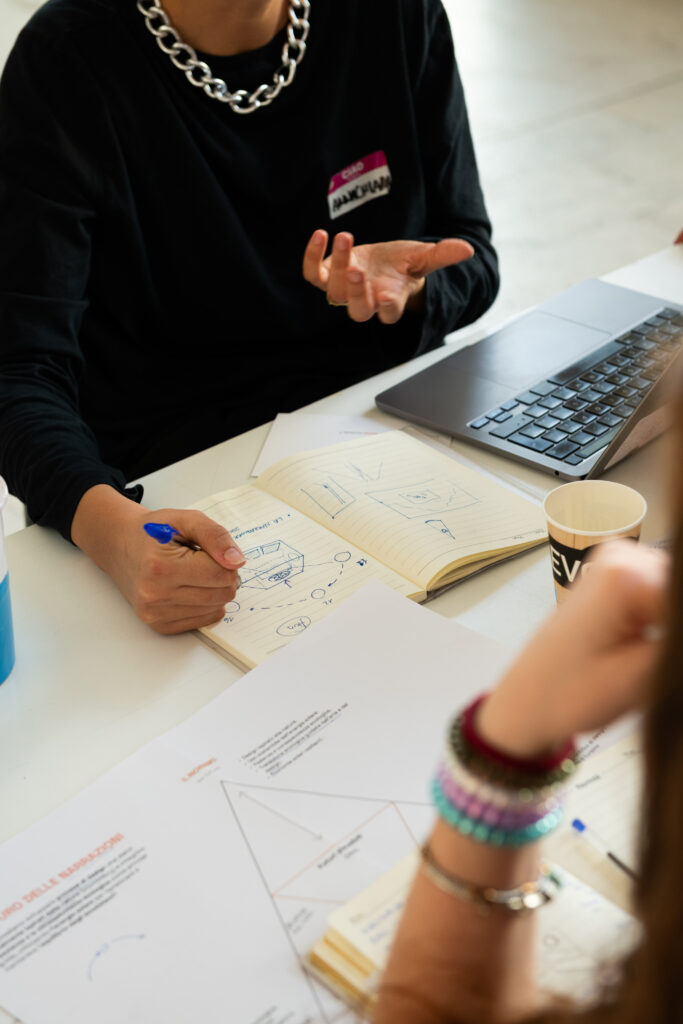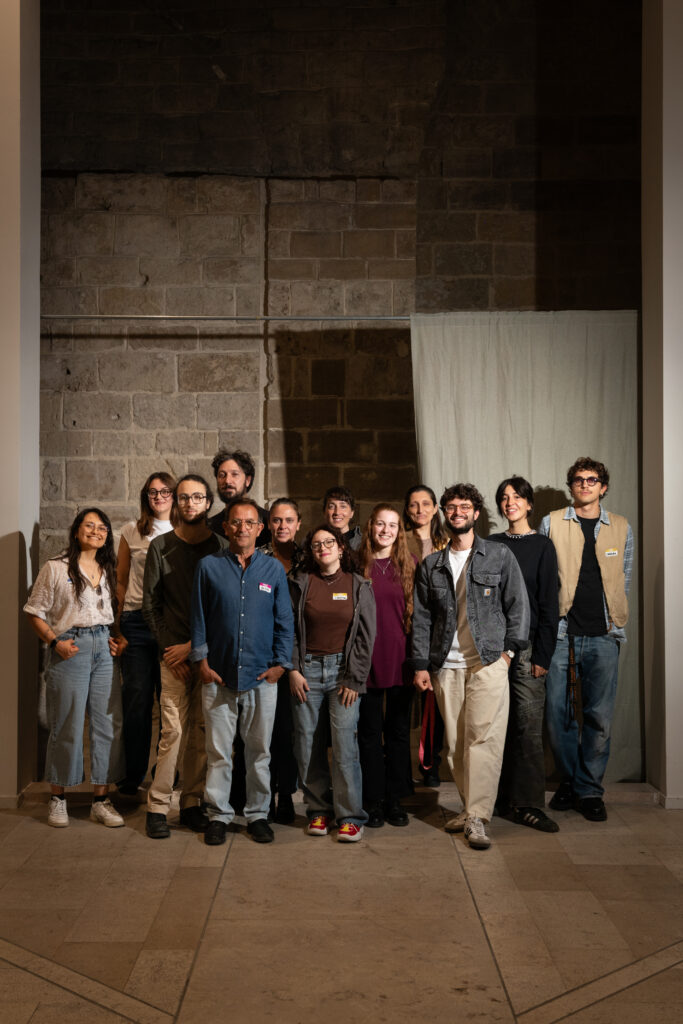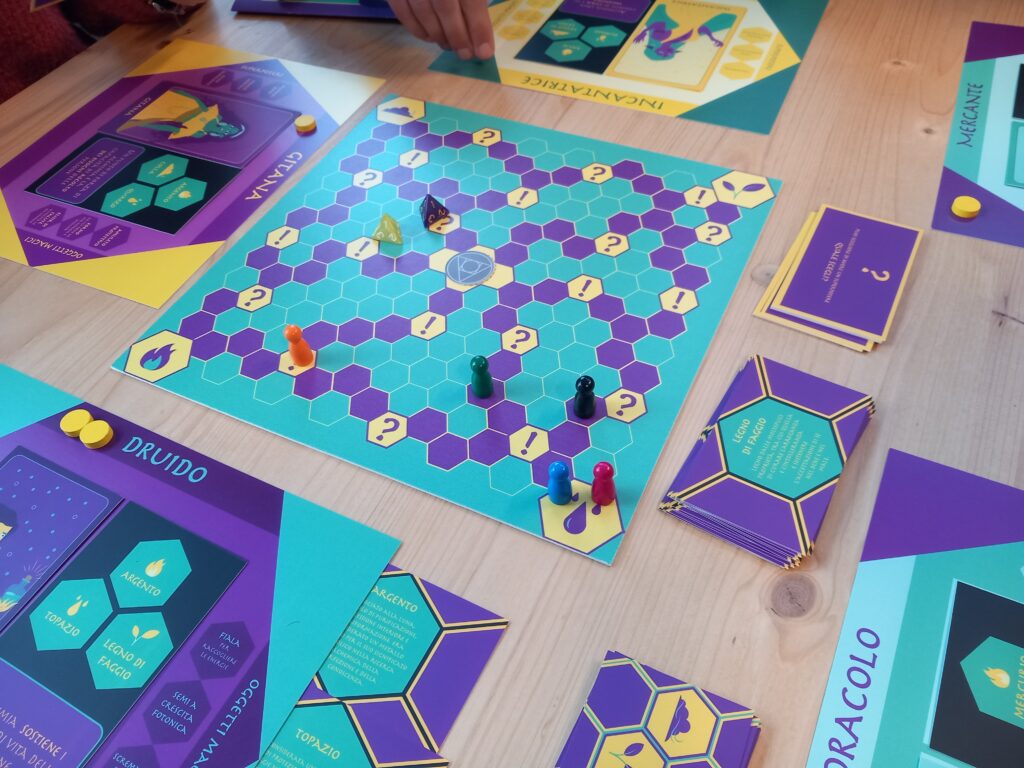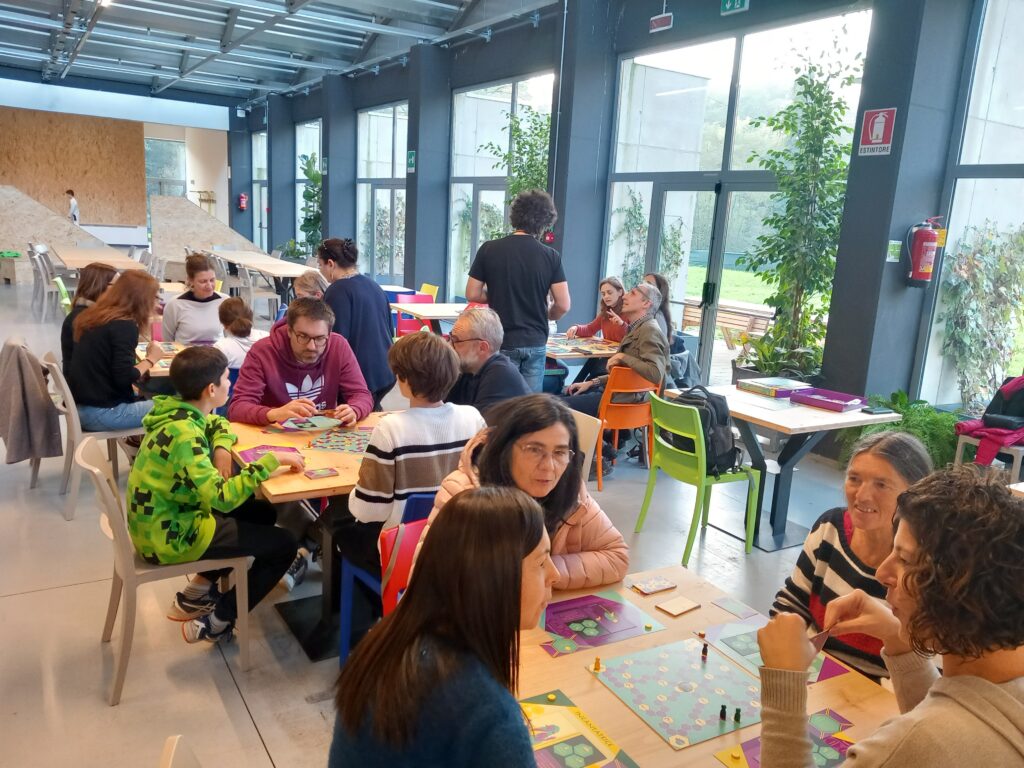The “Design Playfully: Change with a Smile” project, developed by Studio SHIFT as part of the #DEMO2024 initiative with the support of Regione Lombardia, includes two events — one in Bari and one in Bergamo — that explored the innovative use of design and gamification to promote positive changes and engage the community.
The initiative, which brought together designers, young talents, and creatives from all over Italy, builds on the legacy of two previous projects of local significance: Design Sprint 4ETS — also created with support from Regione Lombardia (DEMO 2022) — and TAG35, a project developed by Alchimia and Studio SHIFT with funding from Fondazione Cariplo.
The Design Playfully event in Bari also aligned with SUNPLUGGED, a project promoted by Basso Profilo, ArQuente Associação Cultural from Portugal, and Transversal Project AB from Sweden, supported by the Bari Chamber of Commerce and Fondazione Puglia. This was a unique opportunity for Lombard design to forge new international connections, expanding dialogue and professional networks into new horizons.
But how did it go? Let’s dive into the results and impact of Design Playfully!
Design Playfully Event 1 – Bari Solar design lab: a design workshop for the green transition
In October 2024, the city of Bari hosted an event led by Studio SHIFT and hosted by its Italian partner, Basso Profilo APS. This was the Bari Solar Design Lab, part of the ambitious international SUNPLUGGED project, funded by the Creative Europe program.
The Bari Solar Design Lab took place at Spazio Murat, an important center for design and contemporary art in Bari, featuring two days of intensive collaborative work.
The initiative aimed to:
- Promote collaboration among creatives, professionals, institutions, and businesses to develop projects with social and ecological impact;
- Support innovation by promoting new ideas capable of generating concrete solutions to urgent environmental problems;
- Establish new partnerships to foster synergy between the public and private sectors in the use of renewable resources;
- Raise public awareness on sustainability and solar energy topics.
Participants had the opportunity to delve into sustainable design, exploring the potential of solar energy as a driver for responsible and innovative ecological transition. Through practical workshops, debates, and hands-on activities, the lab provided the tools to turn visionary ideas into concrete, low-impact solutions.

The core of the Bari Solar Design Lab was the Future Triangles methodology, a conceptual tool used in Futures Studies to explore possible scenarios and understand how different factors can influence their development. This methodology, based on Voros’ cone theory, does not limit the vision of the future to a single, determined path but considers a multiplicity of probabilistic futures that coexist in a sort of overlap.
Sohail Inayatullah’s Future Triangles work through three main forces that act as levers in building the future:
- Pull of the Future: the desired vision of the future, representing the aspirations and goals we aim for.
- Weight of the Past: the burden of traditions and social, economic, or political constraints that can hinder change.
- Push of the Present: current dynamics, such as innovation and environmental challenges, that push in new directions.
Using this methodology, participants in the Bari Solar Design Lab had the opportunity to explore possible, plausible, and desirable futures, developing concrete projects centered around three key themes for environmental sustainability:
- The future of narratives: how stories can promote cultural change, positively influencing behavior toward a more mindful use of natural resources.
- The future of habitats: rethinking living spaces to align with sustainability principles (in this case, designing solutions that reduce the environmental impact of construction and promote efficient use of solar energy).
- The future of materials: participants were encouraged to explore the use of sustainable, recycled, or biodegradable materials, developing production processes inspired by nature in manufacturing and recycling.
Thanks to this practical approach, the teams developed design solutions centered on solar energy, reinterpreting urgent topics such as climate change, the use of renewable resources, and the future of sustainable cities.
Among the creative projects presented, three stood out for their originality and development potential:
- Sun-frame, the winning project by Annachiara and Ilenia, is a public installation that captures sunlight and transforms it into a unique sensory experience. Beyond being a work of art, it invites reflection on our relationship with nature and the need to slow down the frenetic pace of modern life.
- Materia Viva, by Alessandra, Dino, and Jacopo, is an innovative modular kit designed to turn waste into useful resources. Each kit functions as a mobile lab, offering practical solutions ranging from plastic recycling for 3D printing to creating fibers from plant waste and even a gardening kit for self-produced food. An integrated energy module manages renewable energy production to power the connected boxes.
- Rootspot, a pioneering project by Vincenzo, Gabriele, and Chiara, uses salt as the primary resource for constructing sustainable, self-sufficient buildings powered by solar energy and designed for natural climate control. This would create a village that serves as a hub for sustainable tourism, where tourists and residents can engage in practical activities related to using salt as a building material, along with cultural events celebrating Apulian tradition.
The projects presented by participants are not only aesthetically appealing but also offer concrete solutions to complex issues, providing a promising outlook on how design, low-tech heritage, innovation, and sustainability with contemporary technologies can play a crucial role in the ecological transition.

Design Playfully Event 2 – Alchimia game design day: a game to explore cooperative dynamics
Bergamo was the second area where we used co-design as a lever, in this case for organizational well-being.
On November 9, 2024, at the welcoming, inclusive spaces of “BOPO” in Ponteranica, alongside Cooperativa Alchimia, we held the ALCHIMIA: The Power of Cooperation event — a workshop where we experimented with a board game created through the collaborative efforts of young designers and Alchimia’s employee-members, supervised and coordinated by Studio SHIFT.
With them and the leadership team, we used the game to simultaneously enjoy and reflect on cooperative dynamics, even for change management purposes.
This approach stimulated participants to consider work and participation dynamics: through group activities, role-playing games, and creative techniques, we explored how to make work more stimulating and rewarding; invite employees to become cooperative members; and communicate Cooperativa Alchimia‘s role to the community.
During the sessions, we used a series of gamification tools and techniques, including:
- Future scenario creation to imagine Alchimia’s work in the coming years.
- Design thinking to solve problems and find innovative solutions with a creative approach.
- Prototyping to visualize and test ideas.

The product-game fosters creativity, collaboration, and problem-solving. Applied to the workplace, it increases motivation, making activities more enjoyable and engaging. Additionally, it encourages innovation, the emergence of new ideas and solutions, and improves communication, creating a more positive and cohesive work environment.
The November 9 public session with 20 participants, including cooperative members, provided an opportunity to test the board game created, facilitated by “young” members who collaborated with Studio SHIFT throughout the ideation process of Design Playfully Event 2.
Feedback was collected through a digital satisfaction questionnaire, revealing key indicators: on a rating scale of 1 to 5, highly positive evaluations (score 4 or 5) were given for graphic quality, clarity and comprehension of rules, and overall playability. 90% of participants confirmed their overall appreciation of the tool!
Design Playfully enabled the realization of what had been previously imagined: the creation of a board game co-designed with the employees of Cooperativa Alchimia. The board, cards, tokens, and dice — everything was carefully considered and meticulously planned, leaving nothing to chance.

Thanks to this project, Cooperativa Alchimia can:
- Improve the employee experience by making work more stimulating and rewarding.
- Increase process efficiency by identifying more effective work methods.
- Strengthen company culture by promoting collaboration and a sense of belonging.
- Innovate services by experimenting with new approaches and solutions.
The Design Playfully project shows that play can be a powerful tool for transforming organizations, and we believe this approach can be adapted across various contexts to make work more human and sustainable.
